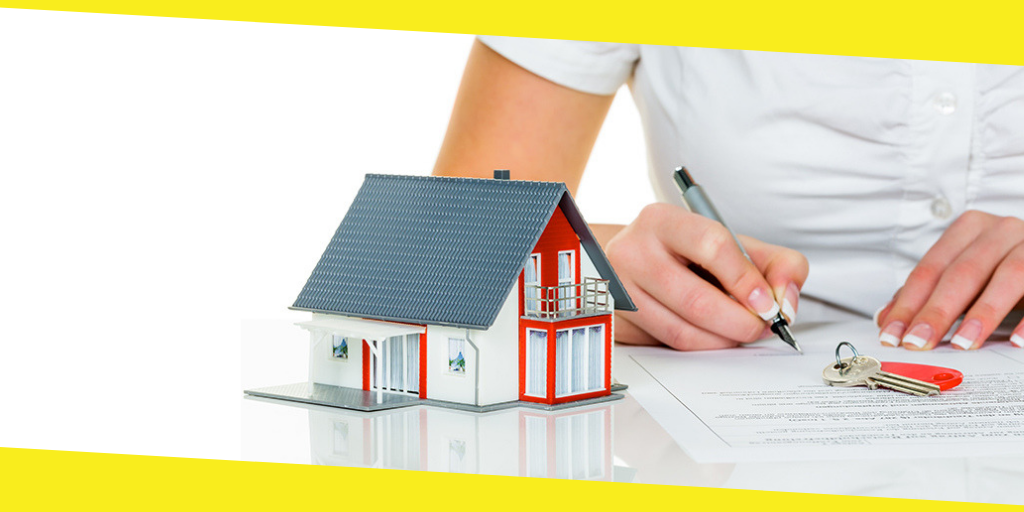5 Signs Homeownership is Right for You
This post was last updated on February 10th, 2021

If you’re surrounded by friends and family who own their own home, it’s probably starting to bug you that you’re not yet in the same position, right? Homeownership sounds like the ideal end goal for many families and couples, but sometimes the prospect can seem a lot more exciting than the reality if you’re not really ready for that type of commitment. Let’s take a look at the top five signs you’re on the right path to getting those keys.
1. You’re a good renter
It goes without saying that if you pay your rent on time, take care of your bills and look after the property both for and in between house inspections, chances are you’d be good at and ready for paying off a mortgage.
When it comes to keeping up with payments for homeownership, this is one of the biggest factors to consider because you’ll not only be paying off a mortgage but also taxes, homeowner’s insurance fees, utilities, any extended television uses (SKY/Cable/Satellite), as well as homeowner association fees and maintenance. If you’re not quite in a position to commit to so many out payments on a regular basis, home-ownership may not be for you at this stage.
2. Job security
If you’re always hopping between jobs (not including climbing up the pay brackets in a corporate job), then have a think about whether you’d be financially stable enough to maintain the payments required to pay off a mortgage.
If this seems like a distant dream, then have a think about your current working position and where you see yourself in five or even 10 years’ time. Can you work towards a career that will see you through at least most of the duration of paying off a mortgage? If not, then you’ll most likely find it very difficult to find a lender who will commit to working with you, because they need guarantees you can hold up your end of the bargain.
3. You have an idea of what you’re looking for
Not everyone will have a clear sense of what their dream home or ideal location looks like, but it really helps to have a rough idea, so that you’re not wasting time when everyone else involved in the process is ready to move onto commitments and putting down a stake. When it comes to working with estate agents, they will ask you questions about your lifestyle, aspirations, family situation and so on, so unless you’re prepared to be sold anything they come up with based off your answers, it helps to have a scope of how much you’re willing to spend, where you want to be located, and the type of home layout you’d like to look at.
4. Good credit
Having a good credit score without excessive debt is a necessity for getting as far as approval for a mortgage. If you’re not able to pay off those credit card expenditures, and your student loan debt is still heavily hanging over your head without a light at the end of the tunnel, you can consider getting onto the property ladder a no-go for the moment.
It’s recommended you check your credit score at least 12 months before stepping into the house- buying zone, to get a clear indication of where you’re at and what’s realistic.
5. You have an idea about the buying process
If you know a thing or two about the house buying process, the actual undertaking can be a bit less daunting and you’ll have a clearer idea of what to look out for with those you deal with.
When you think you’re ready to get everything underway, here are some key things to bear in mind and research further:
- Find a trusted lender – They’re one of the most important people you’ll work with during this whole process. Together you’ll sort out getting a mortgage preapproval loan, and they’ll help you understand the total costs of buying a home.
- Down payments – Deposit rates can be anywhere from 5 – 20 % of the cost price, depending on who you buy through (‘shared ownership’ options are great for those who are not able to save the required amount when buying solo).
- A savings plan – Once you have determined the down payment requirement, develop a savings plan to see how quickly you can pay everything off. The banks or credit unions in your area will want to see a history of stable funds in your account before you apply for a loan.
- Income expenditure – There are different rules and recommendations around how much of their income a borrower should be spending on home payments.
- Cash reserve – It’s always recommended to have a decent stash of savings on-hand to cover about three to six months’ worth of living expenses and unexpected emergencies. This can apply to those in rental properties too, so it shouldn’t be a foreign concept.
So, if you consider all of these factors and find you are on the good side, homeownership might just be waiting for you.
Recommended For You
Easy Ways To Create an Amazing Closet
Most Inside
Most Inside offers high-quality recommendations and valuable updates to enhance all aspects of your life, providing premium guidance and enriching experiences.




